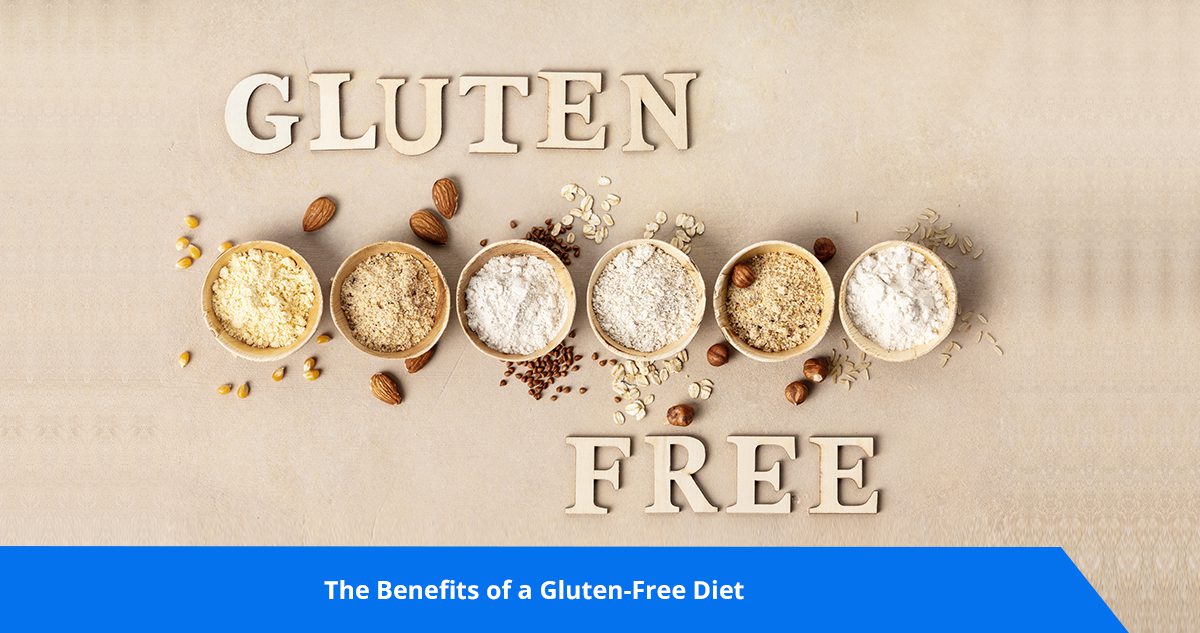Benefits of a Gluten-Free Diet
A gluten-free diet has gained significant popularity in recent years, and for good reason. Many individuals have discovered the numerous benefits associated with eliminating gluten from their diet. In this article, we will explore the advantages of following a gluten-free diet and how it can positively impact your overall health and well-being.
Improved Digestive Health
One of the primary benefits of a gluten-free diet is improved digestive health. For individuals with celiac disease or gluten sensitivity, consuming gluten can lead to inflammation and damage to the small intestine. By eliminating gluten from your diet, you can alleviate symptoms such as bloating, gas, diarrhea, and abdominal pain.
Increased Energy Levels
Following a gluten-free diet can also result in increased energy levels. Gluten can be difficult to digest for some individuals, leading to feelings of fatigue and sluggishness. By removing gluten from your diet, you may experience a boost in energy, allowing you to engage in daily activities with renewed vitality.
Weight Management
A gluten-free diet can be beneficial for weight management. Many gluten-containing foods, such as bread, pasta, and pastries, are high in calories and can contribute to weight gain. By opting for gluten-free alternatives, you can reduce your calorie intake and maintain a healthy weight.
Improved Nutritional Intake
Contrary to popular belief, following a gluten-free diet can improve your nutritional intake. Many gluten-free products are fortified with essential vitamins and minerals, ensuring that you still receive adequate nutrients. Additionally, individuals who eliminate gluten often turn to healthier food options such as fruits, vegetables, lean proteins, and whole grains, which further enhance their overall nutritional profile.
Relief from Chronic Inflammation
Chronic inflammation is a common underlying factor in various health conditions, including autoimmune disorders, arthritis, and cardiovascular disease. Gluten has been found to contribute to inflammation in susceptible individuals. By adopting a gluten-free diet, you can potentially reduce chronic inflammation and alleviate associated symptoms.
Improved Skin Health
For individuals with certain skin conditions like dermatitis herpetiformis, a gluten-free diet can significantly improve skin health. This condition is closely related to celiac disease and is characterized by itchy, blistering skin rashes. By eliminating gluten, individuals with dermatitis herpetiformis can experience a reduction in skin symptoms and achieve healthier skin.

A gluten-free diet offers a multitude of benefits, including improved digestive health, increased energy levels, weight management, improved nutritional intake, relief from chronic inflammation, and improved skin health. By making conscious choices about the foods you consume and opting for gluten-free alternatives, you can enhance your overall well-being and lead a healthier, more vibrant life.
Frequently Asked Questions
1. What is a gluten-free diet?
A gluten-free diet is a diet that excludes the protein gluten. Gluten is found in grains such as wheat, barley, and rye.
2. Who should follow a gluten-free diet?
A gluten-free diet is primarily recommended for individuals with celiac disease, gluten sensitivity, or wheat allergies.
3. What are the benefits of a gluten-free diet?
Some potential benefits of a gluten-free diet include:
Improved digestive health
Reduced inflammation
Increased energy levels
Improved nutrient absorption
Weight loss or maintenance
4. Can a gluten-free diet help with weight loss?
For individuals with celiac disease or gluten sensitivity, eliminating gluten can lead to weight loss due to improved nutrient absorption and reduced inflammation. However, a gluten-free diet alone may not necessarily result in weight loss for everyone.
5. Are there any risks associated with a gluten-free diet?
While a gluten-free diet is generally safe for most people, it can be low in certain nutrients such as fiber, iron, and B vitamins. It is important to ensure a well-balanced diet and consult with a healthcare professional or registered dietitian before making any significant dietary changes.
6. Can a gluten-free diet improve skin conditions?
Some individuals with certain skin conditions, such as dermatitis herpetiformis, may experience improvements in their symptoms by following a gluten-free diet. However, it is recommended to consult with a dermatologist for proper diagnosis and guidance.
7. Is a gluten-free diet necessary for everyone?
No, a gluten-free diet is only necessary for individuals with celiac disease, gluten sensitivity, or wheat allergies. For those without these conditions, there is no proven health benefit to eliminating gluten from their diet.
8. Can a gluten-free diet improve mental health?
While there is limited scientific evidence linking gluten consumption to mental health, some individuals with certain conditions like gluten ataxia or schizophrenia may experience improvements in their symptoms by following a gluten-free diet. It is important to consult with a healthcare professional for personalized advice.
9. Can a gluten-free diet improve athletic performance?
For individuals with celiac disease or gluten sensitivity, eliminating gluten may improve digestion and nutrient absorption, which can indirectly enhance athletic performance. However, it is recommended to consult with a sports nutritionist for tailored dietary recommendations.
10. Are gluten-free products healthier than regular products?
Gluten-free products are not inherently healthier than regular products. Some gluten-free products may be higher in sugar, unhealthy fats, and calories to compensate for the lack of gluten. It is important to read labels and choose whole, unprocessed foods whenever possible.




